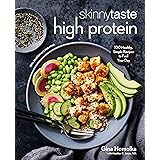It was a Saturday morning, a familiar routine. The plant-based milk carton was pulled from the fridge. A coffee was being brewed, a quick breakfast prepared. There was comfort in the brand, a sense of ethical alignment. Then, a revelation was made, much like the one shared in the video above. Many beloved vegan brands owned by meat and dairy companies came to light. This truth was certainly a little surprising. It challenged preconceived notions about conscious consumption.
This article explores the intricate web of ownership. It dives deeper into the topic of vegan brands owned by meat and dairy companies. Consumers often believe they support fully plant-based entities. However, profits sometimes circle back to animal agriculture. Understanding these corporate structures is important. It empowers consumers to make more informed choices.
Understanding Vegan Brands Owned by Dairy Giants: Alpro and Provamel
Alpro has become a household name. It is recognized for its extensive range of plant-based milks and yogurts. Many individuals consider Alpro a flagship vegan product. However, its ownership might be unexpected. Alpro is owned by Danone, a French multinational conglomerate. Danone holds a significant 25% share of the global dairy industry. This positions it as the world’s largest dairy company.
The acquisition of Whitewave Food in 2016 solidified this ownership. Danone paid a substantial £12.5 billion for Whitewave. This purchase brought both Alpro and Provamel into Danone’s portfolio. Provamel is another popular vegan brand. It is often seen as an alternative to Alpro. Both are now part of Danone’s vast empire. This empire includes traditional dairy products. Brands like Activia yogurt and Actimel are key components. Furthermore, Danone is known for Cow and Gate baby milk. This brand has faced controversy over aggressive marketing tactics. The situation creates a complex ethical dilemma for consumers.
Corporate strategy often drives such acquisitions. Large food conglomerates aim to diversify their offerings. They seek to capture growth in emerging markets. The plant-based sector shows rapid expansion. Acquiring established vegan brands owned by dairy companies secures market share. It also hedges against declining traditional dairy sales. This allows companies to appeal to a broader consumer base. However, it raises questions about the true ethos of these brands.
The Ethical Dilemma of Plant-Based Ownership
Consumers prioritizing ethical sourcing face challenges. Their purchasing decisions aim to avoid funding animal agriculture. Yet, the profits from Alpro sales contribute to Danone. These contributions indirectly support a vast dairy operation. Danone’s dairy production involves numerous cows. It also generates significant greenhouse gas emissions. This ownership structure complicates ethical consumption. It highlights the need for corporate transparency. Consumers are increasingly scrutinizing supply chain ethics. They demand alignment with their values.
Unmasking Ownership in Vegan Spreads: Pure and Vitalite
Vegan butter and margarine products are essential. Brands like Pure and Vitalite are widely available. They are staples in many vegan households. Their parent companies, however, are deeply rooted in dairy. This fact often surprises shoppers. Pure is owned by Kerry Group. This Irish food company holds diverse interests. Kerry Group’s portfolio includes traditional dairy brands. Dairygold and Cheese-string are prominent examples. This connection links Pure to conventional dairy production.
Vitalite also has dairy ties. It is owned by Saputo Dairy. Saputo is a Canadian multinational. It is a major player in the global dairy industry. Saputo produces numerous household names. These include Cathedral City cheese, Clover, and Utterly Butterly. These brands are synonymous with dairy products. Their ownership of Vitalite represents a similar corporate strategy. The goal is often to expand into the plant-based market. This is achieved while maintaining traditional dairy revenue streams.
Such cross-ownership presents a paradox. A consumer chooses a vegan product. Their money helps support an animal agriculture giant. This scenario is increasingly common. It underscores the consolidation of the food industry. Truly independent vegan brands owned by plant-based companies become harder to find. Ethical shoppers must dig deeper for information.
The Legacy Brand: Linda McCartney Foods and its Parent Company
Linda McCartney Foods holds a special place. It is a pioneering vegetarian brand. Many long-term vegans remember its products. Deep-filled pies and sausages were favorites. The brand evokes a sense of nostalgia. Its current ownership might cause disappointment. Linda McCartney Foods is now owned by Hain Celestial. This American company operates globally. Hain Celestial’s portfolio is diverse.
Hain Celestial sells poultry products in the US. This detail is particularly relevant. Furthermore, it owns Ella’s Kitchen baby food. A significant portion of Ella’s Kitchen products contain meat. This combination of interests is noteworthy. It distinguishes Hain Celestial from pure dairy giants. However, it still involves funding animal product industries. The direct sale of meat products is a key concern. This means a portion of profits from Linda McCartney Foods could indirectly support meat production. Consumers often feel a sense of betrayal. They expect ethical alignment from established vegetarian brands.
The Broader Landscape: Why Large Corporations Acquire Vegan Brands
The trend of large food companies acquiring vegan brands is accelerating. This is not a random occurrence. It is a calculated business move. The plant-based market exhibits exponential growth. Forecasts predict continued expansion. Meat and dairy companies recognize this shift. They invest in the plant-based sector. This strategy helps them stay relevant. It also allows them to capitalize on new consumer demands.
Several motivations drive these acquisitions. Firstly, market growth is paramount. The plant-based diet gains mainstream acceptance. Companies want a piece of this expanding pie. Secondly, sustainability claims are appealing. Acquiring vegan brands enhances a company’s environmental image. This can attract younger, more conscious consumers. Thirdly, risk diversification is crucial. As traditional markets plateau, new revenue streams are needed. Plant-based alternatives offer this diversification. They act as a hedge against future market changes. This is a common practice in modern food industry acquisitions.
Navigating the Modern Vegan Marketplace
This corporate consolidation has dual implications. On one hand, it increases availability. Vegan products become more accessible. They appear in mainstream supermarkets. This can lead to lower prices. Innovation may also be boosted by large R&D budgets. On the other hand, ethical concerns persist. The core mission of independent vegan brands can be diluted. Profits might flow to industries that consumers actively avoid. This creates a challenging ethical landscape.
Consumers must remain vigilant. Researching parent companies is vital. Understanding corporate structures empowers choices. Many truly independent vegan companies exist. These brands are dedicated solely to plant-based products. They align fully with ethical vegan principles. Supporting these businesses reinforces the values of the movement. There are always ethical vegan alternatives available. Choices are personal, but knowledge is truly powerful. This insight helps navigate the complex world of vegan brands owned by meat and dairy companies.











